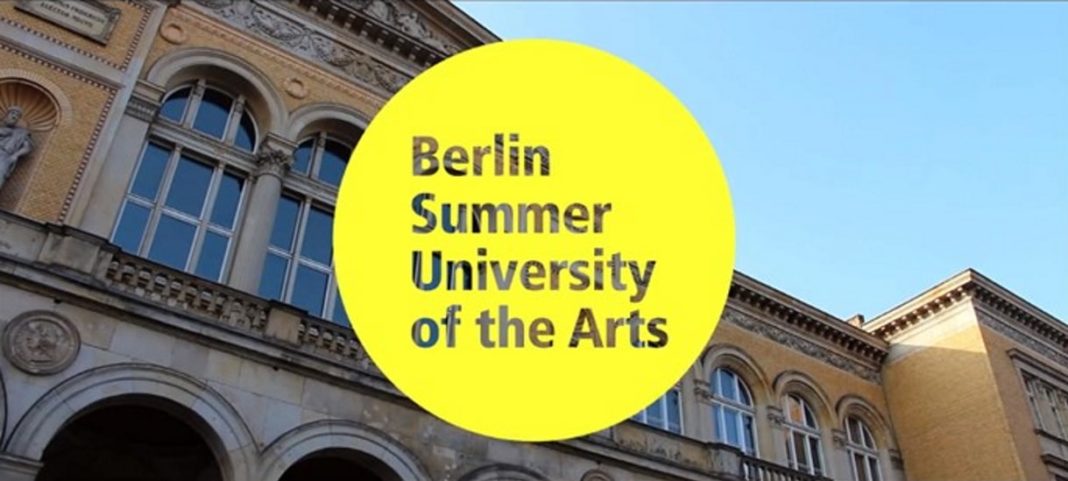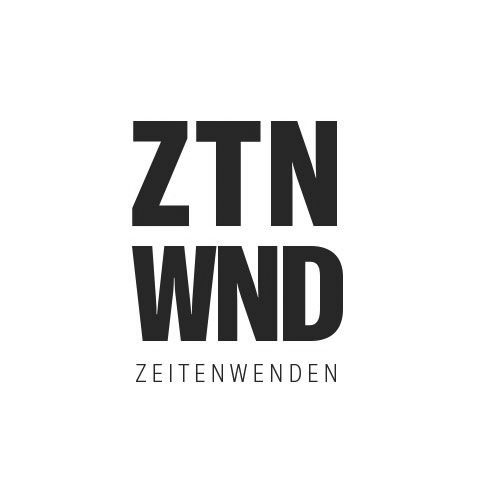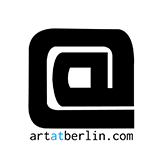An international summer at one of the largest artistic universities in Europe is once again just around the corner: the Berlin Summer University of the Arts 2022, based at the Berlin Career College of the Berlin University of the Arts, presents numerous workshops from June to September 2022. Registrations are now open online. In addition to visual arts, music, design and performing arts, interdisciplinary formats will be taught and philosophical and art-scientific questions will be explored. This year, numerous courses are planned in Berlin as well as online workshops. Whether on site or at home on a laptop – the Berlin Summer University of the Arts offers artists and creatives from all over the world a unique opportunity to develop artistically, to network and to open up new horizons. In the past years, often more than 300 participants from over 30 different countries have been guests.
Image above: © Berlin University of the Arts, Summer University, Film Still
This year’s programme focuses on three key words: Embodiment, Material Cultures and Borders and Encounters. The connection between corporeality and performative art is the focus of two workshops on Body as a Source of Concentration (July 30th-31st and August 23rd-28th) with Viatcheslav Kushkov. In the Material Cultures category, designers Bernd Grether and Sam Kim are among those teaching: the Faulty Material course (July 18th to 20th) is about the design potential of faulty materials and irregularities that have become rare in today’s high-tech world. The third focus, Borders and Encounters, is the workshop Collaborative Playgrounds (August 1st to 5th) with the painters Lexia Hachtmann and Amelie Plümpe. Here, participants will explore forms of collaboration and the collective across disciplinary boundaries, posing political and social questions in the process.
Interdisciplinary work is also made possible by many other workshops that focus on scientific or philosophical approaches. These include Yutaka Makino’s workshop Exp. – Questions of Perception in Art and Science, offered online (June 6th to 9th). The overarching theme of idea generation will be discussed and tested in the course Aesthetic Transformation Processes: Inspiration Across Disciplinary Boundaries (June 27th to July 1st) with Elvira Hufschmid and Margit Schild, who themselves work at the interface of art and science. In contrast, the workshops from the individual artistic disciplines have a strong practical orientation. In the field of music or sound art, for example, Daisuke Ishida invites us to use “noise”, which often has negative connotations, as a disruptive aesthetic element. Seeking for New Noise is offered online and offline (June 13th-17th and August 1st-5th). The Editing for Film and Video Art course (August 22nd to 26th) with video artist Michelle Alperin provides practical knowledge of editing concepts and techniques that can be used in narrative as well as experimental films. The drawing course Transitions – Drawing and Space (September 19th to 23rd) with Pauline Kraneis sketches aesthetic and social borderlines – at transitory places in Berlin, in critical discourse and on drawing paper.
A whole series of offers is dedicated to writing as an artistic practice – such as the workshops Playwriting 1 – From Idea to Scene and Structure with playwrights Prof. John von Düffel and Gerhild Steinbuch (September 12th to 16th) and Playwriting 2 – Gaze Training (September 19th to 22nd) with writer Sasha Marianna Salzmann. Both offers approach (scenic) writing from two different sides: by means of viable paths in conception and play development on the one hand and a questioning of the individual attitude and artistic-political world view (“Gaze”) on the other. The course Floating Texts (August 1st to 5th) with media researcher Annika Haas and artist Anna M. Szaflarski ventures into uncharted territory: the aim here is to test conceptions of text and writing beyond what has been known so far and to make them fruitful for artistic practice.
The Berlin Career College bundles the continuing education programmes of the Berlin University of the Arts. It offers a range of university programmes in the artistic-creative field that is unique in Germany. With four master’s degree programmes and numerous certificate courses, the Berlin Career College is aimed at anyone who wants to deepen artistic-creative approaches and link them to business topics. In addition, the international Berlin Summer University of the Arts presents a highly qualified English-language programme aimed at artists of all disciplines, cultural professionals and creative entrepreneurs. Berlin Career College’s programme offerings are based on its own research findings on the continuing education needs of the creative industries. The executive director of the Berlin Career College at the Central Institute for Continuing Education is Prof. Dr. Dr. Thomas Schildhauer.
The Berlin University of the Arts is one of the few artistic universities in Europe that unites all artistic disciplines and the sciences related to them. More than 70 artistic, artistic-scientific and artistic-pedagogical degree programmes are offered at the faculties of Fine Arts, Design, Music and Performing Arts as well as the inter-university centres Dance (HZT) and Jazz (JIB Berlin) and the Central Institute for Continuing Education. Of around 4000 students, about one third have an international background. The history of the university dates back to the founding of the Brandenburg-Prussian Academy of the Arts in 1696. The UdK Berlin acquired its present form in 1975 through the merger of the University of Fine Arts and the University of Music and Performing Arts to form the University of the Arts (HdK). Since 2001, the Berlin University of the Arts has borne its current name. With more than 700 events a year, it makes a significant contribution to the cultural life of the city. Since 1 April 2020, the President of the UdK Berlin has been Prof. Dr. Norbert Palz.
More information on the complete programme at: www.summer-university.udk-berlin.de






